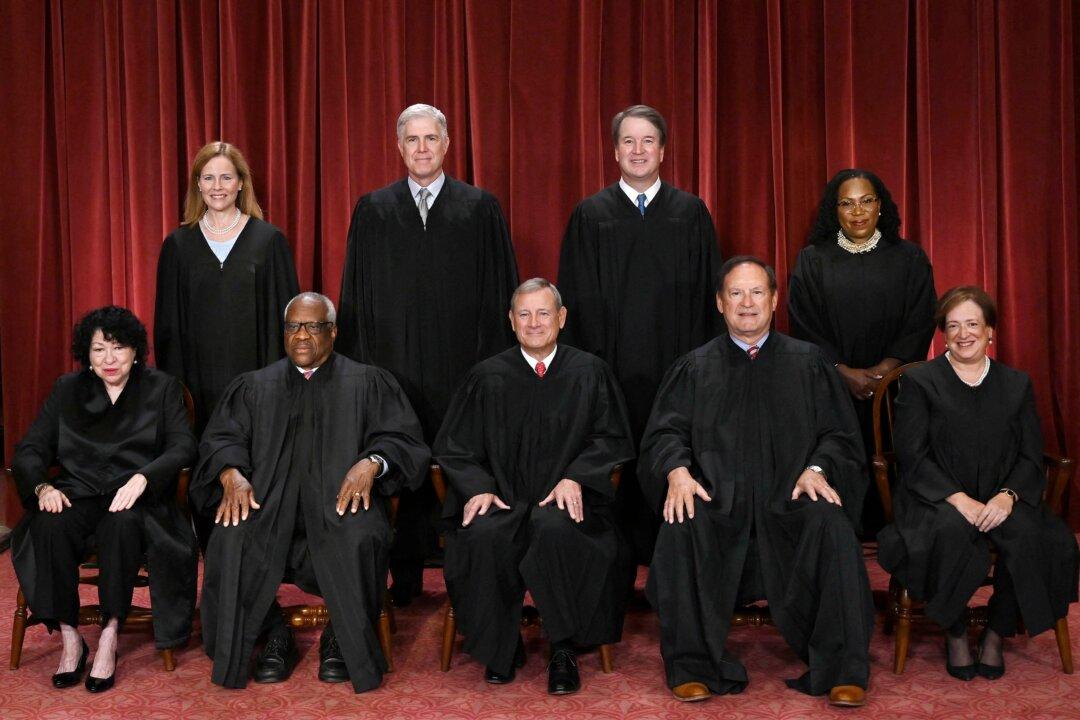Supreme Court Justice Ketanji Brown Jackson was the only dissenter in a high court decision that vacated a lower court ruling earlier this week allowing minors the right to go to court to get permission to seek an abortion.
The top U.S. court overturned a ruling issued by the U.S. Court of Appeals for the Eighth Circuit and remanded the case to the court with instructions to dismiss. The appeals court ruling in April (pdf) said a state court clerk could face a lawsuit for telling a pregnant teenager that the court must inform her parents of her bid to obtain a court order to receive an abortion without her parents’ approval.





